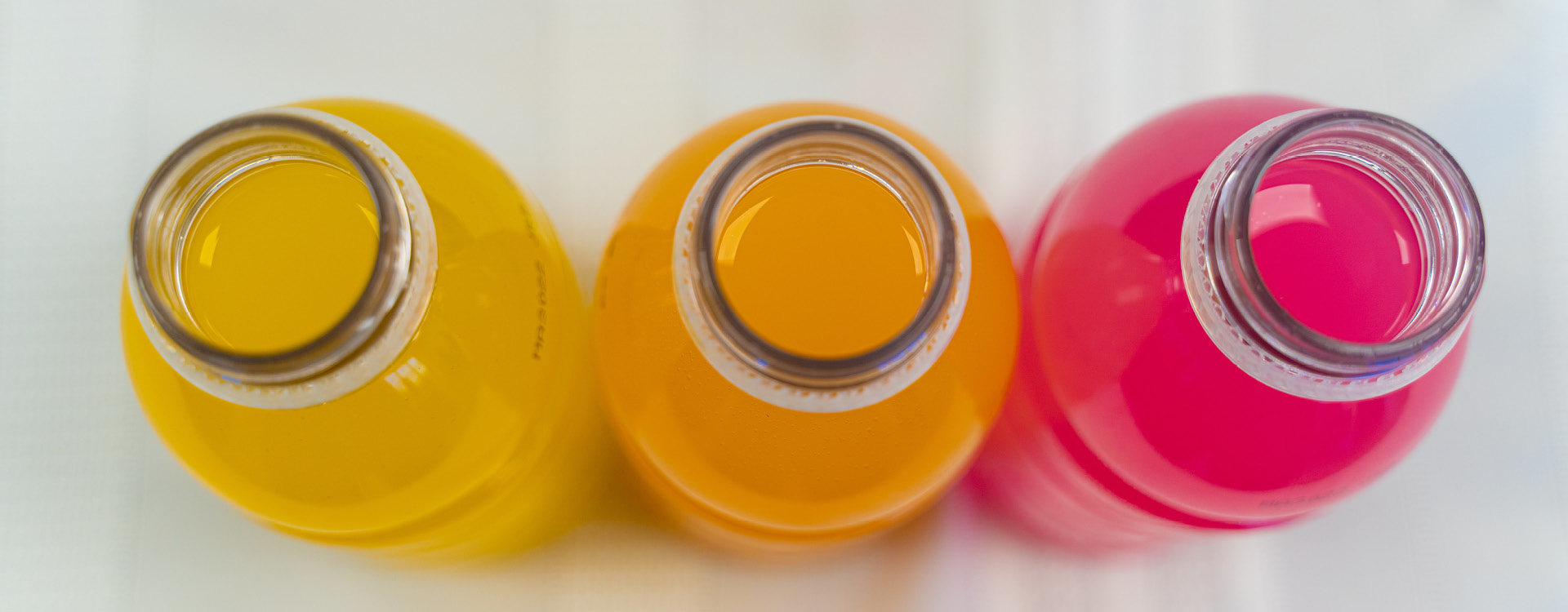Nitrates can be very good for your pregnancy, or very bad: It all depends on the source that you get them from.
Here’s what the science tells us about nitrates and nitrites, and how to choose the sources that are healthy for you and your baby.
What Are Nitrates?
Nitrates and nitrites are simple compounds of nitrogen and oxygen, differing only by one oxygen atom. Our bodies produce nitrates, and we may also take them in from certain foods, medications, or tap water. We need nitrogen and nitric oxide to function properly, but the source matters greatly.
Nitrates are broken down into nitrites, which then can be converted into nitric oxide or nitrosamines.
Nitrates from plant sources like celery, beets, and spinach are converted by our bodies to nitric oxide, which helps regulate blood pressure and improve circulation, enhance athletic performance, release signaling hormones, and provide beneficial antioxidants and anti-inflammatory compounds that promote healing [*][*]. There’s also some evidence that naturally occurring nitrates may help prevent certain chronic conditions and cancers [*].
By contrast, nitrates (and nitrites) in processed meats can turn into harmful nitrosamines during processing, storage, and cooking — a process called nitrosation [*]. The nitrosamines in processed meats increase the risk of colorectal cancer, according to the World Health Organization, and are thus classified as a Group 1 carcinogen. For every 50 grams of processed meat eaten daily, the risk of colorectal cancer increases by about 18% [*]. That’s a lot of risk for a relatively small amount of food.
What Foods Are High in Nitrates?
Foods high in nitrates come in several forms: natural, synthetic, and a hybrid where a natural source like celery or beet powder is used as a preservative.
Here are the approximate amounts of nitrates in these foods in a 100g serving. Those with a range specified can vary widely based on growing conditions:
Natural Nitrates
In addition to the leafy greens and vegetables below, nitrate-rich fruits include watermelon, kiwi fruit, apples, pomegranate, bananas, pears, oranges, strawberries peaches, pears, and grapes [*]. Both garlic and citrus fruits can boost the bioavailability of nitric oxide [*]. In addition to the nitrate powerhouse cilantro, mint, tarragon, and parsley are also good sources of nitrates [*][*].
- Arugula (480 mg)
- Spinach (24-387 mg)
- Bok choy (103-309 mg)
- Rhubarb (281 mg)
- Celery (250 mg)
- Cilantro (247 mg)
- Butter leaf lettuce (200 mg)
- Carrots (92-195 mg)
- Basil (183 mg)
- Spring greens (177 mg)
- Oakleaf lettuce (155 mg)
- Swiss Chard (151 mg)
- Beets (110 mg)
Synthetic Nitrates
These are added to processed meats to keep them free of dangerous bacteria, maintain a pink color (in lieu of an unappetizing grey), and add a salty, umami flavor. The label may refer to them as sodium nitrate, sodium nitrite, potassium nitrate, or potassium nitrite [*].
- Ham (900 mcg)
- Bacon (380 mcg)
- Sausages, Salami, Prosciutto (500 mcg)
- Cured deli meats (500 mcg)
- Uncured deli meats (300 mcg)
- Hot dogs (380 mcg)
Hybrid Nitrates
Hybrid refers to so-called “natural” or “uncured” meats that say they contain no added nitrates or nitrates but use celery powder or another plant-based additive to preserve the product and maintain its color.
Nonorganic celery powder can be very high in nitrates because it's produced using synthetic high-nitrogen fertilizers. One test revealed “nitrate-free” bacon to have almost twice as many nitrates as conventional bacon [*][*].
Can I Eat Nitrates While Pregnant?
Nitrates from natural sources like leafy greens, beets, and carrots are good for you both during and after pregnancy, but the CDC, March of Dimes, and others say it’s best to avoid or limit foods with added nitrates like bacon, ham, and processed deli meats [*][*][*].
That said, vitamin C and foods rich in antioxidants (like nuts, berries, and dark chocolate) can help block the production of nitrosamines — some manufacturers are adding vitamin C to their nitrate-preserved meats for this reason.
But meat-based nitrates also tend to be high in saturated fat and salt, which can cause you to gain too much weight and retain fluids. And meat products that are not cooked thoroughly can expose you and the fetus to listeria, which pregnant women are more susceptible to. Listeria increases the risk of miscarriage and fetal death [*].
Finally, you will want to consider what other sources you may already be getting nitrates from, like your medications and especially your tap water, as the cumulative effect can be highly impactful to your health and that of the fetus [*].
Why Are Nitrates Bad for Pregnancy?
The CDC considers pregnant women and their fetuses to be a high-risk group when it comes to nitrate consumption. The fetus as well as infants younger than 4 months are especially vulnerable to the effects of nitrate consumption, especially in drinking water [*].
Blue Baby Syndrome (Methemoglobinemia)
Blue Baby Syndrome is the most recognized adverse birth outcome attributable to nitrate exposure. Researchers have determined that nitrate/nitrite can traverse the placenta though the exact mechanisms are not well understood [*].
It begins with the increased blood volume and oxygen intake required in nurturing a fetus, which creates oxidative stress on the mother’s hemoglobin levels. Nitrates can tip the scale further to create high methemoglobin levels that restrict oxygen to the fetus. Fetal hemoglobin is more readily oxidized to methemoglobin by nitrates than adult hemoglobin [*][*]. At the same time, an infant has a harder time producing the enzyme needed to convert methemoglobin back to hemoglobin.
This can spiral to other adverse outcomes. An infant's gastrointestinal system has a high PH that is hospitable to the growth of nitrate-reducing bacteria. Gastroenteritis can exacerbate the synthesis of methemoglobin in infants. An infant with diarrhea who is fed nitrate-contaminated well water is at the greatest risk for sepsis [*].
Congenital Birth Anomalies
Several studies have shown nitrates to be a factor in certain congenital birth defects and adverse birth outcomes, including intrauterine growth restriction [*]. Neural tube defects (the origins of the baby’s brain and spine) have also been associated with high levels of nitrates in drinking water [*].
Thyroid and Endocrine Disruption
Nitrate is known to inhibit the uptake of iodine by the thyroid gland, which then reduces the T3 and T4 thyroid hormones and stimulates thyroid stimulating hormone, leading to thyroid disease [*].
Preterm Birth
A 2021 Stanford study of more than 1 million women in California over an 11-year period delivered a potent warning shot about the dangers of nitrates in drinking water and early preterm birth (at least 9 weeks early) [*].
Preterm birth is a main factor in perinatal morbidity and mortality in the U.S., already affecting about 12% of births. Preterm infants have an increased risk of adverse health outcomes in childhood and adulthood, too [*].
Dangers of Nitrates in Water
Nitrates are increasingly found in groundwater from agricultural runoff including fertilizers and manure as well as pesticides. High nitrate levels are often found near farms as well as around golf courses, wastewater disposal sites, and landfills [*]. Not surprisingly, the strongest results of nitrate exposure in the 2021 study were seen among women residing in California’s agricultural regions.
Compared to women exposed to the lowest nitrate levels (less than 5 mg/liter), women exposed to 5-10 mg/liter were 47% more likely to have a spontaneous early preterm birth, and women exposed to more than 10 mg/liter in their drinking water were 252% more likely.
The EPA standard for nitrates in public water is 10 mg/liter — shockingly low in light of this study.
What made the 2021 study so compelling is the study population: The cohort initially included data on all singleton births delivered at nonmilitary hospitals from 2000-2011 — more than 6 million babies. The researchers then eliminated births where hypertensive disorders and diabetes had been diagnosed, set specific parameters for the gestational term and birth weight to rule out other factors, and eliminated potential bias based on maternal age, race, prenatal care, and other factors.
From that population, the researchers compared outcomes among consecutive siblings from the same mother with different gestational exposure to nitrates in their drinking water. This “within-mother” cohort, as it was called, thus controlled for factors such as genetic predisposition, health behavior, and socioeconomic status. They then used the geocoded maternal residential addresses to determine the source of the water supply.
The authors note that other contaminants alone or in conjunction with nitrates may have affected the study, but the results are compelling nonetheless.
Nitrates and Pregnancy FAQ
Can I get my water tested for nitrates?
Yes, there are several ways to do this. You can get a test kit online or contact your state’s Department of Agriculture or Department of Health to learn how to submit a water sample. Or, even easier, you can enter your zip code in the Environmental Working Group’s Tap Water Database and get an immediate accounting of the chemicals in your water [*].
Can I filter my water to remove nitrates?
Yes, ion exchange units, reverse osmosis filters and distillation can remove nitrate and other chemicals from drinking water [*]. Boiling does not remove nitrates; It may actually concentrate them.
Can nitrates cause birth defects?
Yes, some studies have shown that high levels of nitrates can cause a range of adverse birth outcomes including certain birth defects [*].
Can nitrates in water be absorbed in the bath or shower?
No, nitrates in water are not absorbed through the skin [*]. But nitrates can be inhaled through dust containing nitrate salts, an occupational hazard for farm workers, and family members can be exposed from dusty work clothes.
Can you eat nitrate-free lunch meat when pregnant?
“Nitrate-free” ham or bacon will likely have nitrates from celery powder or beet powder and may actually contain more nitrates than conventional lunch meat. To minimize your exposure to nitrosamines, look for deli meats that are cooked and sliced fresh at the store or, among those that are packaged, look for products containing Vitamin C to mitigate nitrosation.
That said, deli meats that are high in saturated fats and salts may exacerbate fluid retention and make you uncomfortable as a result.
What is the safest deli meat to eat while pregnant?
Turkey or chicken breast would be a better choice than cured meats like ham or salami, but the safest route would be to roast (or sous vide) your own. Turkey and chicken sausage may contain added nitrates. The March of Dimes (and others) recommend that deli meat be cooked until steaming hot to avoid the risk of listeria or avoided altogether during pregnancy [*].
Is it OK to eat pepperoni while pregnant?
Cooked pepperoni is safe to consume, but cold pepperoni (like other cured sausages or salami) is not cooked and can harbor bacteria that can harm the fetus [*]. A few cooked pieces on your pizza may not harm you if you don’t make a habit of it, but processed meats are still considered a carcinogen by the CDC.
Can you eat bacon while pregnant?
Safe when fully cooked, but not a healthy choice. To minimize the nitrosation, it’s best to microwave it [*]. And like any fatty, salty, nitrate-laden meat, have it as a once-in-a-while treat.
Is it OK to eat Subway while pregnant?
Subway actually recommends that pregnant women only eat items that do not contain their luncheon meat (meatball, steak and cheese, roasted chicken, tuna) and limit their servings of these other products to 2 a week [*].
Can I eat hot dogs while pregnant?
A regular diet of hot dogs is not good for anyone, especially pregnant women, but cravings during pregnancy can break down the most disciplined eaters. If you must have a hot dog, be sure it’s steaming hot to avoid the potential for listeria.
Are there other sources of nitrates I should be concerned about?
Yes, nitrates are typically found in nitrosatable drugs, such as those used for treating heart disease. The FDA has not established that it is safe to treat pregnant women with nitrates. One study found a higher incidence of stillbirth among women taking nitrosatable drugs during pregnancy but noted that the risk may be compounded by how much nitrates the mother may have in her drinking water or diet [*] [*]. Inhalant drug use and certain topical medications may also expose you to nitrates, but the primary route of exposure is ingestion, according to the CDC [*].
The Bottom Line
Nitrates that occur naturally in vegetables and fruits can be very beneficial to your pregnancy and your health in general. However, nitrates in your water supply, garden fertilizer, medications, and preserved meat products can be harmful to you and the fetus, which is more susceptible to the effects of nitrosamines.
To minimize your exposure to nitrates, consider investing in a good water filtration system, avoid fertilizers in your garden, and choose foods without added nitrates or with added Vitamin C to offset the nitrosation.
Keeping Families Safe
MiracleCord helps families make good choices when it comes to saving cord blood and tissue. We offer the industry’s most advanced technology, high-touch service, and affordable prices.
There are more than 80 FDA-approved treatments that use cord blood, and many more in clinical trials. To learn more about cord blood and tissue, download our Free Guide.
DISCLAIMER: THE INFORMATION ON THIS WEBSITE IS NOT INTENDED TO BE USED AS MEDICAL ADVICE.The materials and information contained on the MiracleCord website is provided for educational and informational purposes only, and is not intended to, and does not constitute, medical or other health advice or diagnosis, and should not be used as such. You should not use this information to diagnose or treat a health problem or disease. If you are seeking personal medical advice, you should consult with a licensed physician. Always consult with a qualified health care provider regarding a medical condition.




